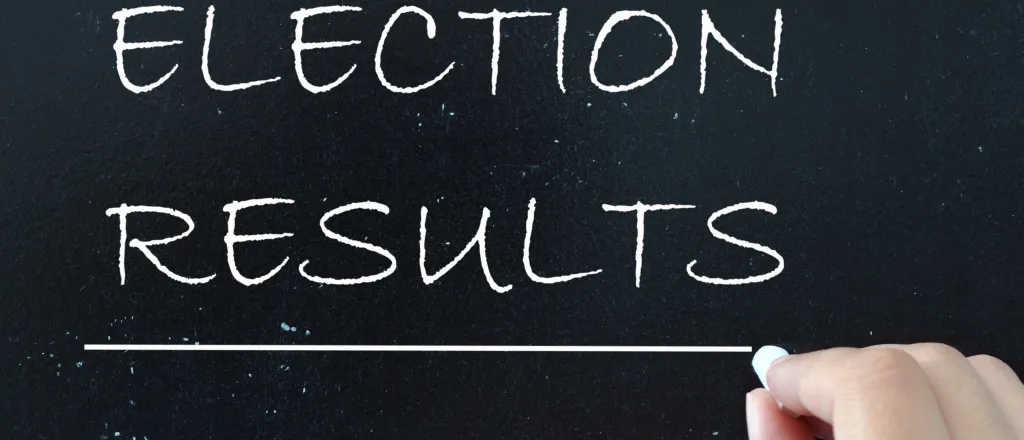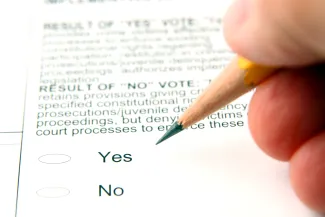
Fact check: Colorado voting machines not connected to the internet
(Colorado Newsline) Most counties in Colorado have upgraded their voting systems equipment since 2020 to models that physically cannot connect to the internet, and those that rely on older machines are statutorily required to disable any wireless capability.
Election officials say that even the older models do not create a vulnerability in the voting system, as some conservative politicians and activists claim.
“This is a known thing amongst the counties and amongst the Secretary of State’s office — that the (wireless) card was physically present, and so that there’s a couple of steps that were taken to ensure that it wasn’t activated or present,” Boulder Clerk and Recorder Molly Fitzpatrick, a Democrat, said.
Republican Heidi Ganahl, a former University of Colorado regent who ran unsuccessfully for governor in 2022, said during a press conference last month that she found wireless networking cards in Douglas County that “could be used to expose the voting system to unauthorized remote access.” She indicated that the cards could reduce the integrity of Colorado’s voting system by allowing unauthorized access to the machines that count ballots and tabulate results.

© Baris-Ozer - iStock-1420488382
“Any wireless remote access hardware or software should be removed from our voting systems immediately to restore some measure of justified trust and confidence in our upcoming election,” she said.
So-called election integrity activists have claimed, especially since 2020 and the false claim that the presidential election was rigged in favor of President Joe Biden, that the presence of wireless capability in voting machines creates an opportunity for hackers to manipulate results. This has become a common talking point for election deniers. There is no evidence this has ever happened.
Some aspects of counties’ election management systems use commercially-available technology with the wireless capability disabled at the operating system level, according to Douglas County Clerk and Recorder Sheri Davis. There is a limited supply of devices without any wireless capabilities, so using hardened devices with those aspects disabled is a cost-effective industry standard.
No voting machine in Colorado is connected to the internet, and it would take a high level of coordination of bad actors to bypass the safeguards set in place. Essentially, someone would need physical access to the component, know the system setup password and then activate the wireless capability in the code.
“It’s not as simple as flipping on a personal hotspot. There are layers and layers to not allow somebody, even if they have physical access, to activate anything,” Weld County Clerk and Recorder Carly Koppes, a Republican, said.
“It is very unfortunate that Heidi has been so reckless at this point in time, with pushing out this information and trying to make it appear as if it is a vulnerability or an issue,” she said. “Anybody that actually knows anything about Wi-Fi — if it’s not turned on, you can’t see it and it can’t be used as a vulnerability.”
Upgrades since 2020
Ganahl’s claims were based on the 2022 general election. Since then, most counties have upgraded from Dominion Voting Systems Democracy Suite 5.13 to Democracy Suite 5.17, which was certified by the United States Election Assistance Commission in March 2023. That new hardware does not include any wireless networking cards or physical Wi-Fi capabilities.
Boulder County, for example, upgraded following the 2023 fall elections.
But even counties that have the old version are required to disable any wireless capability during the “trusted build,” the process of upgrading equipment in a secure environment before the general election.

© Svanblar iStock-146069215
Ten counties use the 5.13 version: Cheyenne, Hinsdale, Jackson, Mineral, Otero, Phillips, Routt, San Juan, Elbert and Grand, according to the secretary of state’s voting systems inventory.
Rio Grande County was set to upgrade its voting system to 5.17 in July, but county commissioners voted to rescind the contract to do so on June 26, about two weeks after they heard from election conspiracists during a work session about the Dominion update. The board then voted to upgrade the system and approve the contract with Dominion in a 2-1 vote on July 23.
All but two counties use Dominion machines. Two counties — Douglas County and Garfield County — use Clear Ballot’s ClearVote 2.3 systems. All connections between the devices in that system are closed and wired, and jurisdictions have to disable wireless capabilities on any hardware used with the system, according to the system overview published by the company. ClearVote 2.3 was certified by the EAC in October 2022.
Davis in a statement described the ClearVote system as a “voter-verifiable paper ballot system that is never connected to the internet and cannot be hacked.”
“Every single county clerk and recorder, even if they have machines that still have the Wi-Fi component in it, our security checks and balances are very secure,” Koppes said. “They are trustworthy, and we do everything that we can to make sure that we are keeping every component safe.”
Colorado Newsline is part of States Newsroom, a nonprofit news network supported by grants and a coalition of donors as a 501c(3) public charity. Colorado Newsline maintains editorial independence. Contact Editor Quentin Young for questions: info@coloradonewsline.com. Follow Colorado Newsline on Facebook and X.

















